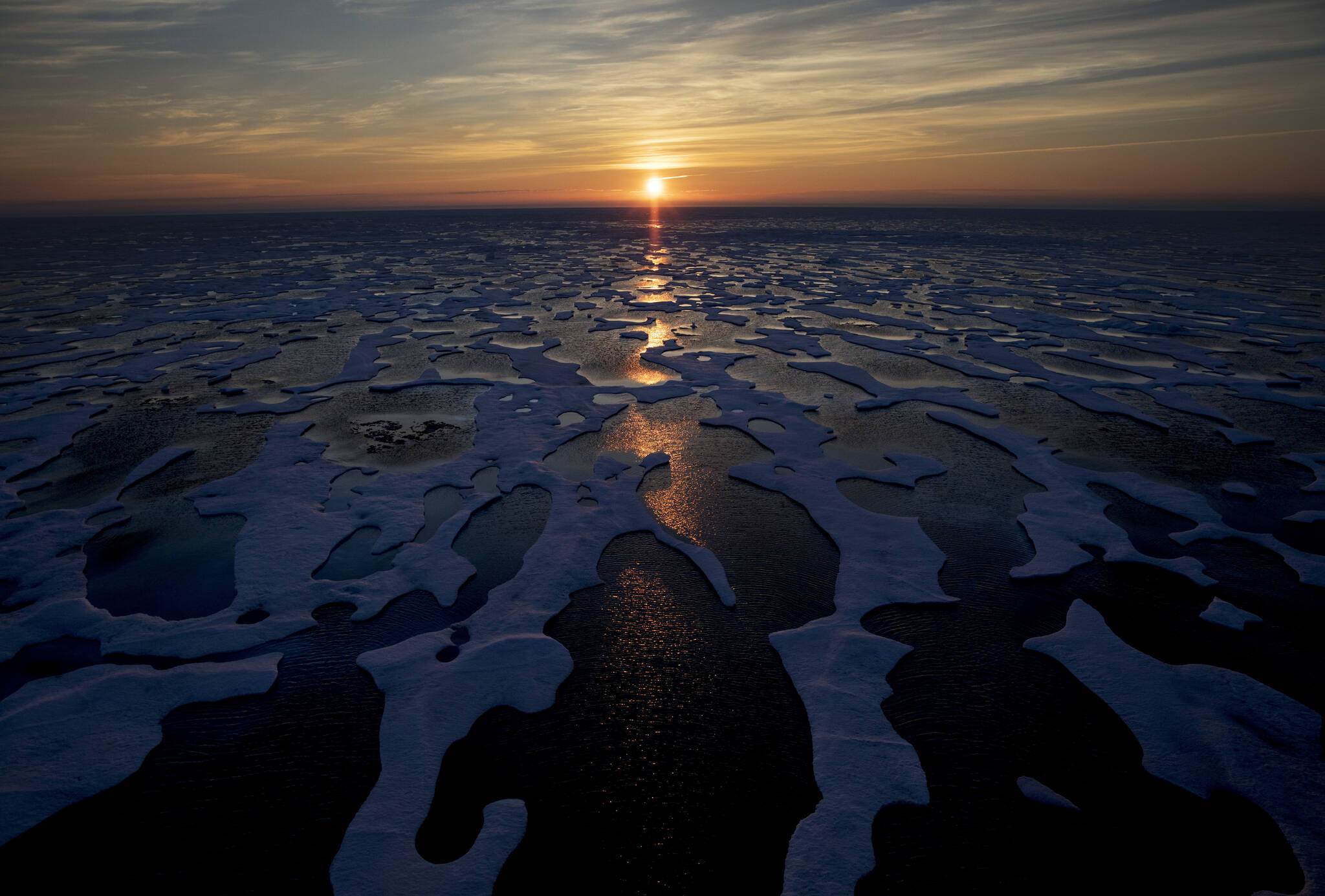By Seth Borenstein
AP Science Writer
The Biden administration is stepping up its work to figure about what to do about the thawing Arctic, which is warming three times faster than the rest of the world.
The White House said Friday it is reactivating the Arctic Executive Steering Committee, which coordinates domestic regulations and works with other Arctic nations. It also is adding six new members to the U.S. Arctic Research Commission, including two Indigenous Alaskans.
The steering committee had been moribund for the past four years, not meeting at a high level, said David Balton, appointed to direct it. He said “it will step up and do more in the Arctic.”
The revamped committee will try to figure out what “needs to be done to get a better handle on addressing the changes in the Arctic,” Balton said.
University of Colorado scientist Twila Moon, who is not involved with the committee or commission, praised the developments. She said that because the Arctic is changing so quickly, “serious issues like national security, stability of buildings and roads, food availability, and much more must be considered and acted on promptly,” Moon said. “The U.S. cannot afford to sit back on Arctic issues.”
Balton, in an interview, said the Arctic is “opening up in a number of ways. Most of this is bad news.”
“But there’s also increased tourism and increased shipping, potentially other industries coming up into the Arctic that need regulation,” he said. “And right now the nations and the peoples of the Arctic are scrambling to keep up with this change.”
The new efforts emphasize working with Indigenous people.
“It’s really important to achieve these goals, so it has to be done in partnership with people who live in the area,” said committee deputy director Raychelle Alauq Daniel, a climate policy analyst and Yup’ik who grew up in Tuntuliak, Alaska.
Superpower tensions are likely to increase in the region as it becomes more ice-free in parts of the year, allowing not just more shipping but the temptation for going after resources such as oil, Balton said.
People who live in the Lower 48 states should still care about what happens in the polar region, Balton said.
“The Arctic is kind of a bellwether for what happens to the planet as a whole. The fate of places like Miami are tied very closely to the fate of Greenland ice sheet,” Balton said. “If you live in Topeka, Kansas, or if you live in California, if you live in Nigeria, your life is going to be affected. … The Arctic matters on all sorts of levels.”

